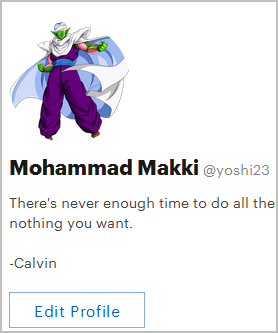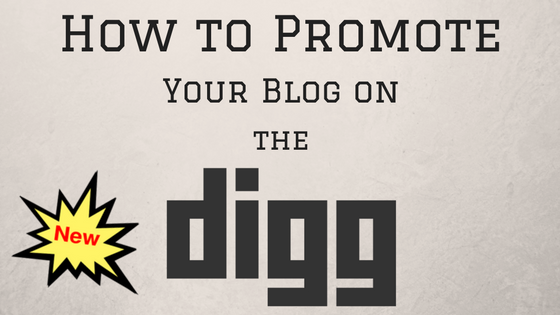After I discovered StumbleUpon and experienced its traffic-generating powers, I decided to pause my stumbling binge to check out a site I discovered (again) through Twitter- another easy blog promotion platform called Digg.
Well, maybe not that easy…
Digg is a social news site, as opposed to a discovery engine like SU is. Users submit articles/blog posts to the database, and other users can ‘digg’ those submissions. A “digg’ is basically a like, which you really should be familiar with by now.
Digg used to be hugely popular from its release in 2004 to around 2010, but spam, bad management, and easy exploitation caused it to close in 2012. The Digg we’re talking about here is the reborn Digg, and it’s extremely different from the old one.
Unlike StumbleUpon, Digg isn’t completely randomized. You still find interesting content, though. There’s just no “stumble” button.
But like StumbleUpon, Digg’s content database grows by link submission, which is where you, the blog promoter, step in. That’s a big reason why people associate the two sites. As I explain here, Digg is a great place to promote your content for free.
How Does Digg Work?
Luckily for us promoters, Digg is very easy to understand.
Digg is a news aggregator. It collects articles from all over the Web and presents them in a “front-page” style.

A lot of these articles are long or in-depth, which isn’t what you would see on SU, where lists and viral content is more popular.
I honestly spent a lot of time on Digg as I wrote this post, mainly because it has “rabbit hole” potential, like SU and Wikipedia do. I do hate wasting time, but I could learn a whole lot from a few articles.
There is another benefit though. Digg is a powerful way to find new ideas for blog posts. Since most of the stuff you read will be on or near the top of the page, it’s a good way to get a feel of what’s popular. You could even find new blogs to follow as well.
Notice the diggs each post has? The more diggs a post gets, the more likely it is to be featured on the main page. Or, as you can see at the top, they could be featured right in their own category.
So in a nutshell, more diggs equals more exposure… generally. The site has reduced the impact of Diggs since it relaunched, since it was so easy to pay people to digg. Even so, Diggs can only help a post.
Submitting Your Content
I felt this section was necessary, because this part was confusing at first.
See, the link to submit links (heh, heh) is found on the footer of the site, but the footer only appears on the main pages. Any other page won’t show it because they’re all feeds that don’t end.
This is the Digg menu. The links at the top (except Store) will have the “Submit a Link” page. All other pages don’t have the footer.
Why the footer menu couldn’t be everywhere, I don’t know.
Anyway, one you get to the link submission, you, well, submit that sucker.
That’s pretty much it. One you submit a link, it’s sent to the moderators for approval (unlike the old Digg), and after that you’ll just have to hope it gets diggs.
…Not really. This isn’t a hit and run operation. There are things you can do to help your links get more diggs. Well don’t just stand there, move to the next section!
Using Digg to Get Traffic to Your Blog
As I said a subheading ago, just submitting links and expecting a flood of traffic isn’t very practical.
You need to do things, and actually participate on the site, which brings me to the first to the point:
Note: once you submit a link, there’s no way to see how it’s doing. So your attention should be focused on the content you’re submitting.
Be Active on the Site

It goes without saying that active users of any social media site are more popular than the ones who just lurk around. As a former lurker, I would know.
When I say “active,” I mean actually digging other posts, submitting lots of content, all that jazz. This mainly shows Digg that you care about the site and can help you get noticed.
It’d also be a good idea to complete your profile. Of course, unlike StumbleUpon, Digg doesn’t have many social features, so it won’t have much effect. However, I’d still do it if you want to take part in Digg Dialogs.
Dialogs are basically discussions held on a specific event, like a news story or documentary. I don’t care about them, but the discussion is civilized, so there’s that.
Don’t Be Selfish
Understandably, Digg will punish users who only submit links. They consider this spam, so it’s important to digg as well.
Keep in mind that the new Digg is way more serious about this than it was before it was revamped. You’ll have to restrict yourself and not barrage the site with your posts.
Submit Great Content
I really hate resorting to a tip that’s cliche, but it does work well here.
After its rebirth, Digg became mostly a content curator, which means that great content is to expected.
Now, when you submit a link to Digg, it’s usually gonna be accepted, as long as it’s not spam or especially thin. I’ve seen some not-so-great articles on the site.
However, the front page isn’t determined by an algorithm…it’s determined by a team of editors! How’s that for a twist?
Okay, not exclusively by editors. A computer (or something) sorts out the top articles in terms of shares, clicks, and diggs, and then those top articles are sent to the editors.
So it’s a challenge to get huge exposure, but the right content can do the trick.
Temper Your Expectations…
I’ve already harped on about how easy it is to submit your posts to Digg. And it is, make no mistake. But that also means you shouldn’t expect too much out of it.
As a free way to promote your blog that isn’t social media, Digg can’t be expected to generate a flood of traffic. Don’t get me wrong, it can get you hits, but the chances of anything game-changing is very low.
There’s also the fact the traffic won’t be very targeted. Depending on your niche, that could be a problem, or not. Just Saiyan.
If you can get your content to the front page, that’s another story. The chance of that happening is pretty low, though.
Despite all this, it’s still worth it to submit your links to Digg. It doesn’t take much work and honestly, any free traffic is good traffic.
Or Consider Advertising
Like StumbleUpon, Digg offers paid advertising. I can’t vouch for it, mainly because I haven’t tried it yet, but it does seem to work.
The cost of the ads is $6/CPM, which is a fancy way of saying 6 bucks for every 1000 impressions.
Admittedly, the targeting is rather weak compared to other paid ad services like Google and Facebook, or even SU (why am I still comparing them?).
For geo-targeting, you can choose between worldwide or United States, with specific options for most US cities.. That’s it. Targeting the US adds another $1.50 to your CPM, though.
I’d only go for this option if I just couldn’t wait or needed results no matter what.
Digging Up a Few Closing Thoughts
These days, Digg is almost obscure compared to how it was in the past. A lot of people (read:me) don’t even know it still exists.
I’m happy to say that the Digg I’m using now is a completely different site. It’s just a really useful content curator and the editors seem to making huge efforts to improve. At least, that’s what they sounded like in their Reddit AMA.
If you haven’t already, I highly recommend trying Digg out. It might not give you perfect results, but it’s free, and any exposure can only help, am I right?
Thanks for reading! What do you think of Digg? Did you try it out? Got any questions? Leave a comment below!
And if you enjoyed the article, please share it with others on social media!
Your deputy in digging,
-Makki
Latest posts by Makki (see all)
- How to Keep Your WordPress Blog Secure - January 17, 2018
- Why You Should Start Your Blog in WordPress - January 8, 2018
- Essential Plugins for Your WordPress Blog - December 27, 2017




Hi Makki,
So that’s what Digg is! I’ve stumbled across it many times during my online excursions, but never stopped to check it out or create an account. So thanks for the review! Gives me yet another platform on which to promote my sites. 🙂 Although, in my niche I’m afraid I won’t make the home page. But who knows? Anything can happen.
Speaking of that, have you noticed any small blogs listed on the home page?
Ian
Hi Ian! We all could use as much platforms as possible to promote on, so Digg is useful as another tool. I’m not gonna lie, it’s not very likely you’ll make the main page. But that shouldn’t stop you from submitting your links anyway! You have nothing to lose, and a little traffic to gain.
I don’t know what you define as “small,” but I have seen some niche sites up there. I don’t think they care about how small a blog is, they care about how much shares and reads it gets. Hope this helps!
Thanks Makki.
I have been using Digg for a long time but I will be hones there I have just been a submit and run type of person.
I learned a lot from reading your post on Digg and I am now in the process of actually completing my profile and I am about to have a look around the website now.
I guess the same goes for every social network. You need to take part of it to have any effect!
It’s always a good idea to put work into social media. Most people use it for fun, but when you’re promoting on it, you need to take it seriously. That’s why participation is key. Good luck on Digg, Lynne!
Hi Makki,
Nice and informative post about Digg. I myself have never used it so found it very interesting. I will definitely take a closer look. I previously have used Stumbleupon but can’t say I had much success with it. Once again, content is KING. This is now a common theme in internet marketing and ranking in the search engines.
Do you foresee Digg overtaking other social media platforms in the future?
– Craig
Content is surely the most important part of any site, and platforms like Digg and SU emphasize that even more. These days, you pretty much need quality content.
I love Digg, but it’s never gonna be bigger than sites like Facebook, Twitter, Reddit, or even StumbleUpon. Quite frankly, it doesn’t have to be. It’s barely a social media platform in the first place. What it is now is a news curator, and it does that extremely well. Hope that answers your question Craig!
Thank you Sir!
Social media is evolving every day and it can be hard to keep up!
Nice info.
– Craig
Interesting read and another place to get noticed 🙂 Thanks for sharing I am going to go check it out now.
Glad you like it Helen! Have fun!
Hi, this is interesting! Had not heard of DIGG before – will give it a try though, nothing to lose. Thanks for the info!
Vee
That’s the spirit! You can only benefit if you try it out. Thanks for reading!
Makki, what an informative post. I love the fact that you’ve thoroughly investigated the site before commenting on it. I was not aware of Digg before and will most certainly go check it out. Thanks for the info!
Thanks! Investigation is key. It’s important to know what you’re talking about, after all. I hope you enjoy Digg Marisa!
I want to thank you for your article on StumbleUpon. I tried it out after I read your review and it boosted my blog posts quite a bit! There wasn’t anything within my niche but I didn’t have to engage with anyone to get page views as people just “stumbled upon” them!
I shell definitely have a look at digg to see if its good for my niche 🙂 Thanks!
Hey, that’s great to hear! I love StumbleUpon for that very reason. I haven’t gotten an avalanche of traffic so far, but the effect is noticeable. It tends to go up when I’m active on the site, though.
I hope your Digg experience ends up as good as your SU one did! Thanks for reading, Emma!
Helpful as usual, Makki. I had no idea Digg was gone, or that it had come back. But your note gives me a lot to think about. I also have not really spent any time with StumbleUpon, so I should go give your article on that a look, too.
From what you’ve said about Digg, I can see how it would be useful. But as you say, it comes down to quality of content, and perhaps the targeted execution of an external distribution and marketing plan.
I’ll be coming back to this. Interesting. Thank you!
Best wishes,
Kevin
Hey Kevin! You must have used it back in the day. It died a painful death, but it’s come back as something totally different.
Digg is definitely harder to make use of than StumbleUpon. If I had to go with one, I’d choose SU. I actually spend more time on SU as well. But you have nothing to lose by submitting your link, so why not?
HI Makki ,
I learned about a new platform today. Hopefully it’ll help my posts. Thanks for sharing!
Cool! Thanks for reading Lawrence!
Hi, Makki
Thanks for sharing this post Digg. First, I made up my mind to join but as I read your article I started having second thoughts.
I think I would have liked it to give me more traffic and to come on the first page some day. But you tell me that it’s unlikely that it will happen, so I have my doubts. I’ll still try it though.
But thanks again for sharing.
Tove
I know what you mean Tove. Getting on the first page is really unlikely, especially if your niche isn’t very popular. But traffic can still come from it, you know. Your content doesn’t have to be on the front page.
Hi Makki, I never thought that promoting my blog on Digg was a good idea, for the simple fact that I thought you wouldn’t get much traffic, but after reading this article it looks like I’m missing out, especially on potential sales. I will get onto this right now and see how it goes. Thanks so much buddy!
-Brandon
It’s really not much work at all, so I would go for it. Worst case scenario, you waste 5 minutes. Not a bad deal. Good luck Brandon!